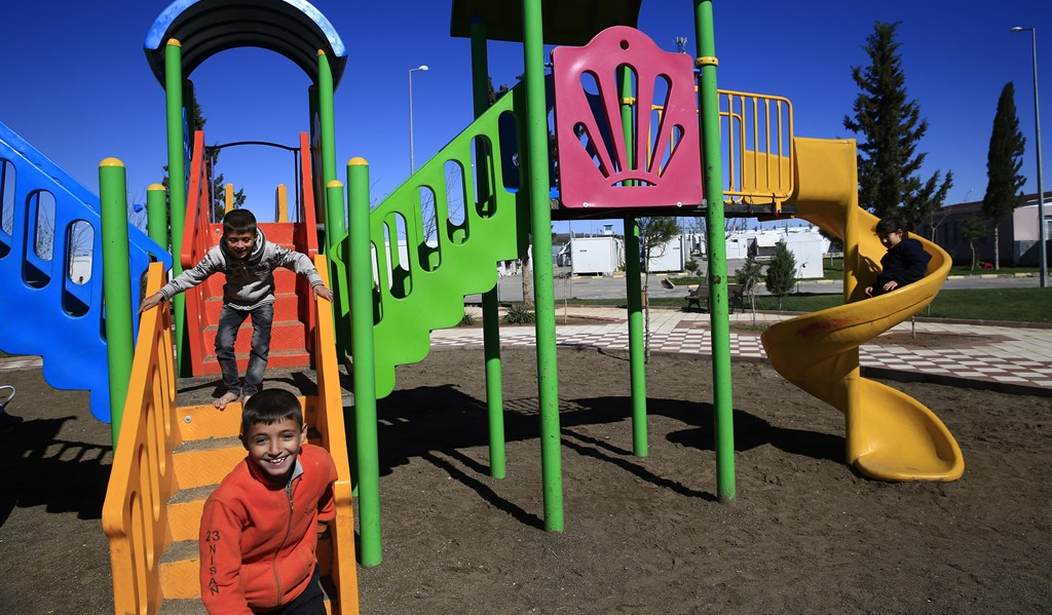Having kids who are in middle school provides a painful reminder that many children go through a phase of being cruel to others. Working in higher education is a painful reminder that some don't outgrow it.
Observing my own children's experience while watching surprisingly similar conflicts play out among college students who insist that they deserve to be treated like "grown-ups" has been an eye-opener.
The latest college brouhaha took place at Dartmouth College, where the Kappa Delta Epsilon sorority cancelled their annual Kentucky Derby party in response to protests that the party was "racist," "elitist" and "related to pre-war Southern culture."
Derby devotees can do a far better job than I at explaining the event's actual legacy (the first event wasn't held until a decade after the Civil War ended; Kentucky never joined the Confederacy). But it doesn't matter. Every day brings a new "threat" to the safety and security of our poor college students. If hats and horses aren't intimidating enough, then it's "Trump 2016" written in chalk on the sidewalks, sloppy swastikas drawn in poop on bathroom walls or the mocking of Native American "war-cries."
Some of these acts are completely innocuous. Others are stupid or boorish. Some, of course, are deliberately cruel.
We've grown accustomed to the "-isms" that social scientists and civil rights activists attach to these behaviors: racism, elitism, classism, sexism, nativism, speciesism. And then there is "privilege," which comes in every flavor imaginable: white, male, Christian, cisgendered, middle-class, abled, sighted and so on. There are theories aplenty to back up all of these labels, and just as many policy proposals to eradicate them from society forever. But we're not likely to have much success with those efforts if we're not brutally honest about what's going on.
Recommended
This is where access to middle school children comes in handy. If you spend much time around 11-, 12- and 13-year-olds, you see very quickly that children can be mean. And that meanness takes just about as many forms as there are types of people.
In fact, kids display astonishing adaptability at identifying things about other kids that they can target and pick on. Boys pick on girls. Some boys exclude other boys. (Girls' ability to ostracize other girls is the stuff of legends.) Short kids pick on tall kids. Tall kids pick on chubby kids, who pick on skinny kids. Kids with crooked teeth make fun of kids with braces. Athletic kids make fun of computer geeks. (In fact, I have discovered that even among athletes, there is a pecking order: football, basketball and soccer are "cool" -- swimming, not so much.)
What makes this doubly absurd is that -- at least at that age -- children will even pick on others for admirable qualities: "She's a brain," "He's too nice," "They never get in trouble."
Trying to come up with an "-ism" for each of these is an exercise in futility. What these children are displaying is not some cultural prejudice as much as it is the ability to identify anything -- anything -- distinctive about another person, which might be a source of vulnerability. And then go in for the kill.
It's plain human meanness, pure and simple.
Happily, most people grow out of this phase. But some don't. What's the difference between meanness at 12 and meanness at 20? Well, if you take immaturity and add the heady rush of freedom from parental supervision, easy access to alcohol (which is behind 90 percent of these incidents) and an only partially developed frontal lobe to the mix: That is a recipe for monumental stupidity and cruelty.
If we are looking for explanations, we really don't need to look much further than that.
We are so busy devising sociological or cultural explanations for these behaviors that we are overlooking the anthropological ones. What's missing in our discourse about behaviors that hurt others is the ability to recognize the universality of it. All humans have the capacity to be cruel.
But then again, perhaps that oversight is by design. By placing cruelty into neatly defined cultural categories, people can conveniently exclude themselves -- or groups with which they happen to identify -- from this hard truth, and justify their own behavior, while condemning others'. Attaching political significance to those categories further transforms this inquiry from a quest for truth to a push for power.
The willingness to recognize cruelty, stupidity and meanness as universal human traits might seem like bad news. Our species has been around for millennia, and these behaviors have proven difficult to root out.
But kindness and empathy are also human traits, ones that can be instilled. Thoughtfulness can be taught. Maturity can be attained (and it's far easier when there are mature adults to model this behavior). Instead of labels and accusations, we should be pushing our young people to be mature adults, with the appropriate level of kindness and respect directed at others.
Would this help calm the fractious climate? Maybe. It is perhaps ironic, but nevertheless true, that the ability to identify the same traits in ourselves that we dislike in others is an equalizer; the corollary is the ability to see that those we view as hostile to us also have the same capabilities for goodness and decency.
If middle school children can learn this, surely college students can.

























Join the conversation as a VIP Member